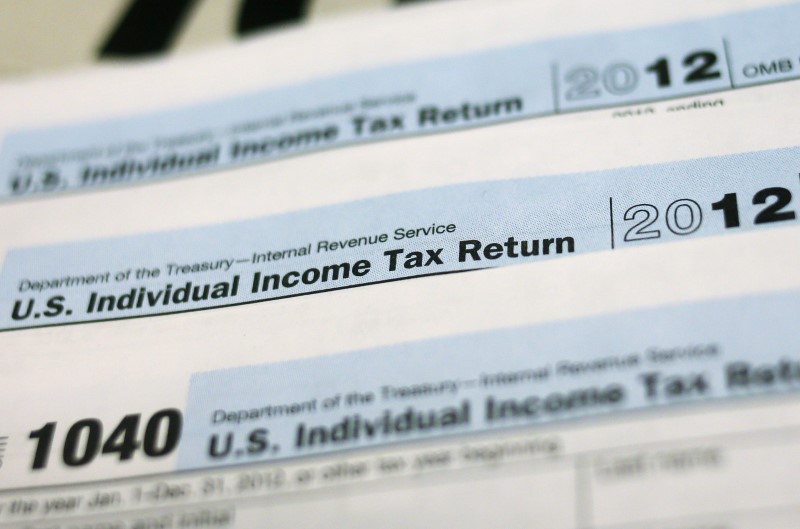By Beth Pinsker
NEW YORK (Reuters) - If you pay quarterly U.S. taxes, the April IRS deadline is a double whammy - you have to file your 2017 return and you have to pay the first portion of your taxes due for the current year.
Good luck with that in the next few weeks, especially if you qualify as a sole proprietor or other type of freelancer claiming new deductions.
Professional software and calculators are available online to help you estimate your 2018 taxes; however, the IRS has not finalized the details.
And without that information, it will be hard from some freelancers calculate the new 20 percent deduction for sole proprietors, known as Section 199A. The new deduction pertains to pass-through income, which is business income that counts as personal income on a tax return, for anyone from freelance ride-share drivers to plumbers to lawyers.
Some of the key details that still need to be sorted out are who exactly gets the pass-through deduction, how much of it they can claim and also where it fits into the final 1040 form for 2018.
Uncertainty is inspiring a lot of speculation among financial professionals and shrugging emojis on social media.
The new deduction should apply to virtually all solo freelancers, who will qualify as "Specified Service" businesses, according to financial planner Michael Kitces, partner and director of research for the Maryland-based Pinnacle Advisory Group, says that
That means their income will determine how much of the deduction they get to claim. Those making more than $157,000 as an individual or $315,000 as a married couple will start to phase out of the tax break, which gets complicated quickly.
Taxpayers also need to be mindful about who qualifies as a solo proprietor and who really should be characterized as an employee, said Gene Zaino, CEO of MBO Partners, a financial firm specializing in independent workers. If you receive income from only one source and have no control over hours or no real business stake, you might raise a red flag for an audit.
The new deduction is considered "below-the-line," which does not reduce your adjusted gross income but lowers your taxable income. You will fill out your Schedule C as normal - listing your income and subtracting your qualified expenses and then calculating your self-employment tax.
The deduction will come off somewhere on the 1040 form against your business income, and there will likely be some kind of worksheet to walk you through the calculations.
More guidance should be available by the summer, said Zaino.
ESTIMATING YOUR TAX BURDEN
To figure out your first quarterly payments, you most importantly need to know your tax burden in 2017. One way to skirt the new math is to pay what you paid last year - even if you think you will owe less in 2018 - so that you avoid penalties for underpayment. Or you can pay 90 percent of what you think you will owe in the current year.
You can also "annualize" your quarterly payments, said Lisa Greene-Lewis, a CPA and tax expert with TurboTax, which means that you base your payments on your income for the whole year, instead of big fluctuations month-to-month.
TurboTax has a free TaxCaster app that will take your 2017 info and calculate your tax burden for 2018. It takes into account your pass-through deduction, if you had freelance income previously. For spreadsheet pros, there are several online templates that attempt to work out the 199A pass-through deduction, which you can search out.
If you employ a tax professional, they are probably engaged at the moment in a review of all of their client files and can help you figure out the right amount to pay.
Tax accountant and financial planner Phyllis Jo Kubey, who is based in New York and specializes in artists, is not only looking at freelance income but also at making sure withholding is correct on W-2 paychecks. Most of her clients have a mix of self employment and wage income.
Kubey is not yet sure what to do with her clients who have income from sources outside of the United States because the law specifically refers to "domestic income," and the IRS has not clarified what that means.
"If a U.S.-based self-employed opera singer performs at La Scala (in Milan), is that qualified business income or is it disqualified because the services are performed outside of the U.S.?" Kubey asked.

(This version of the story corrects paragraph 13 to show percent to 100 percent of prior year, or 90 percent of the current year, corrects paragraph 17 typographical error to accountant instead of account)